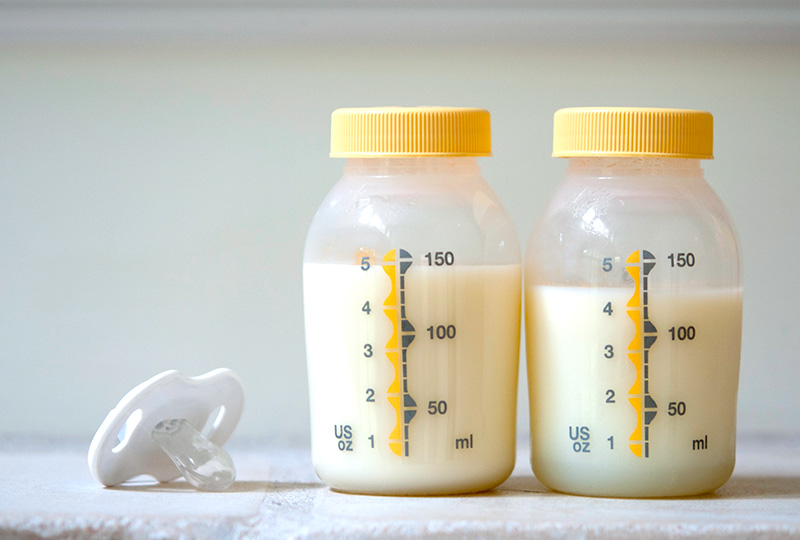Breast milk donation helps infants receive health benefits of human milk, even if it can’t come from their own mothers.
Experts agree that the best nutrition for a newborn baby is his or her own mother’s milk. However, some new mothers cannot produce breast milk immediately after delivery due to a medical illness or a baby’s prematurity. Some mothers cannot give their baby their own milk due to medications they must take or the distance they live from a neonatal intensive care unit. Donating breast milk is a way to help infants receive the health benefits of human milk, even if it doesn’t come from their own mothers.
Who donates breast milk?
Before donating breast milk, donors are carefully screened. They can be women who make more milk than their babies need or even women who have experienced the loss of a baby but are still producing milk. Breast milk donors are not paid. Similar to blood donation, breast milk donors are giving a gift to help babies who need it.
Why give babies donated breast milk instead of formula?
Most breast milk donations go to fragile, premature infants hospitalized in neonatal intensive care units. Some studies have suggested that giving these premature babies human milk instead of formula helps lessen the risk of infections and diseases such as necrotizing enterocolitis. This is a serious problem in which the intestines necrose, or die, and can cause harm or death to a premature baby. The World Health Organization recommends that if a baby cannot receive his or her mother’s milk that donated human milk is the next best option if available.
Can bereaved mothers donate milk?
Loss of a baby causes a terrible grief. Some bereaved mothers find a small amount of comfort in donating their milk to help other sick or premature babies. Many milk banks have special programs for bereaved breast milk donors.
How do I donate breast milk?
If you want to donate breast milk locally, you can contact an organization like Mother’s Milk Bank. You will fill out an online form, go through a phone interview with questions about your health, medications and lifestyle as well a your baby’s health. The bank may ask to contact your obstetrician or your baby’s pediatrician for a health release. The next step involves having your blood tested for certain infections. If you are accepted as a donor you will then get instructions on how to package frozen milk and where to drop it off. Some organizations will let you mail milk to them in special packaging to keep it frozen. Once the milk is received, it is tested and pasteurized for safety before being sent to neonatal intensive care units for babies.
Believe it or not, there is a large market online for donating, buying and selling human breast milk. Make sure you chose an organization that will deliver the milk according to your goals and values. There are numerous organizations that take breast milk as a donation and deliver only to babies in need of it. The Human Milk Banking Association of North America can help you find a reputable human milk bank.
Are there ways to support break milk donation even if I am not lactating?
Many breast milk banks rely on volunteer support and donations to continue their programs and make sure that every baby who needs human milk has access to it without regard to ability to pay. You can check out these organizations online to see how you can help.
This post was written by Lara F. Harvey, M.D., an assistant professor in the Vanderbilt Department of Obstetrics and Gynecology. Raised in McMinnville, Tennessee, Harvey completed her undergraduate degree in Anthropology from the University of South Carolina. She graduated from Vanderbilt Schools of Medicine and Public Health in 2010 and completed residency training at Beth Israel Deaconess Medical Center. She returned to Vanderbilt for a fellowship in Minimally Invasive Gynecologic Surgery.




